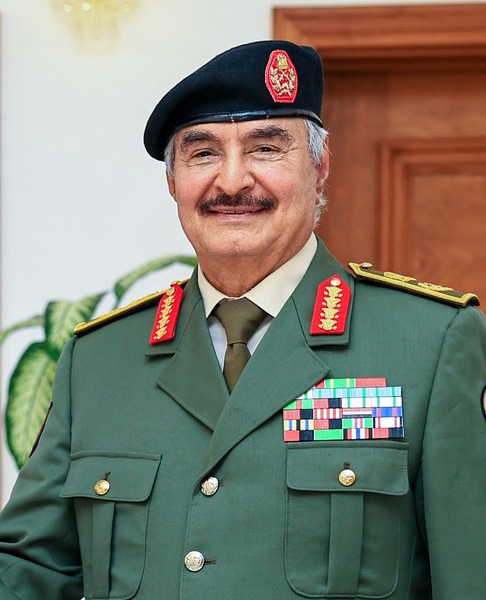Military commander Field Marshal Khalifa Haftar, who has command over forces in eastern Libya, engaged in discussions with Russian President Vladimir Putin in Moscow on Thursday.
Field Marshal Haftar, a supporter of the House of Representatives government located in the eastern city of Tobruk, has over time fostered close relations with Moscow, and heavily depends on the Russian mercenary group, Wagner, for military aid.
The administration in Tobruk is in contention with the UN-endorsed Government of National Unity situated in Tripoli.
Field Marshal Haftar “engaged in discussions with Russian President Vladimir Putin and Defence Minister Sergei Shoigu,” declared his Libyan Arab Armed Forces group on social media.
Kremlin spokesman Dmitry Peskov verified that Field Marshal Haftar had conducted discussions with Mr. Putin.
“The situation in Libya and the overall region were the subjects of their conversation,” Mr. Peskov conveyed in statements reported by Russia’s state news agency, Tass.
This was the inaugural meeting between the two individuals since 2019, as per Libyan media reports.
Field Marshal Haftar, arriving in Moscow on Tuesday, had previously engaged in discussions with Deputy Defence Minister Yunus-Bek Yevkurov.
Mr. Yevkurov has been a recurrent visitor to eastern Libya in the last few years, his most recent visit being on September 17, where he met Field Marshal Haftar following the floods that wrecked the coastal city of Derna, resulting in thousands of fatalities and numerous missing individuals.
A 2019 onslaught by Field Marshal Haftar’s forces on the government in Tripoli was significantly dependent on Wagner mercenaries. However, it was unsuccessful in overcoming the Turkish-supported armed forces of the Tripoli government.
Post the October 2020 ceasefire, which concluded the offensive, Wagner relocated several of its members, including to other locations in Africa – a continent where Russia has been endeavouring to enhance its influence – and to Ukraine, participating in Moscow’s invasion.
Nonetheless, despite successive UN Security Council resolutions demanding the withdrawal of all foreign military personnel from Libya, a substantial number of Wagner staff are still positioned in the east and in regions of the desert south under Field Marshal Haftar’s command.
The future plans of Wagner are indeterminate following the demise of leader Yevgeny Prigozhin in an aeroplane crash north-west of Moscow in August.
Image Credit: US Department of State



















